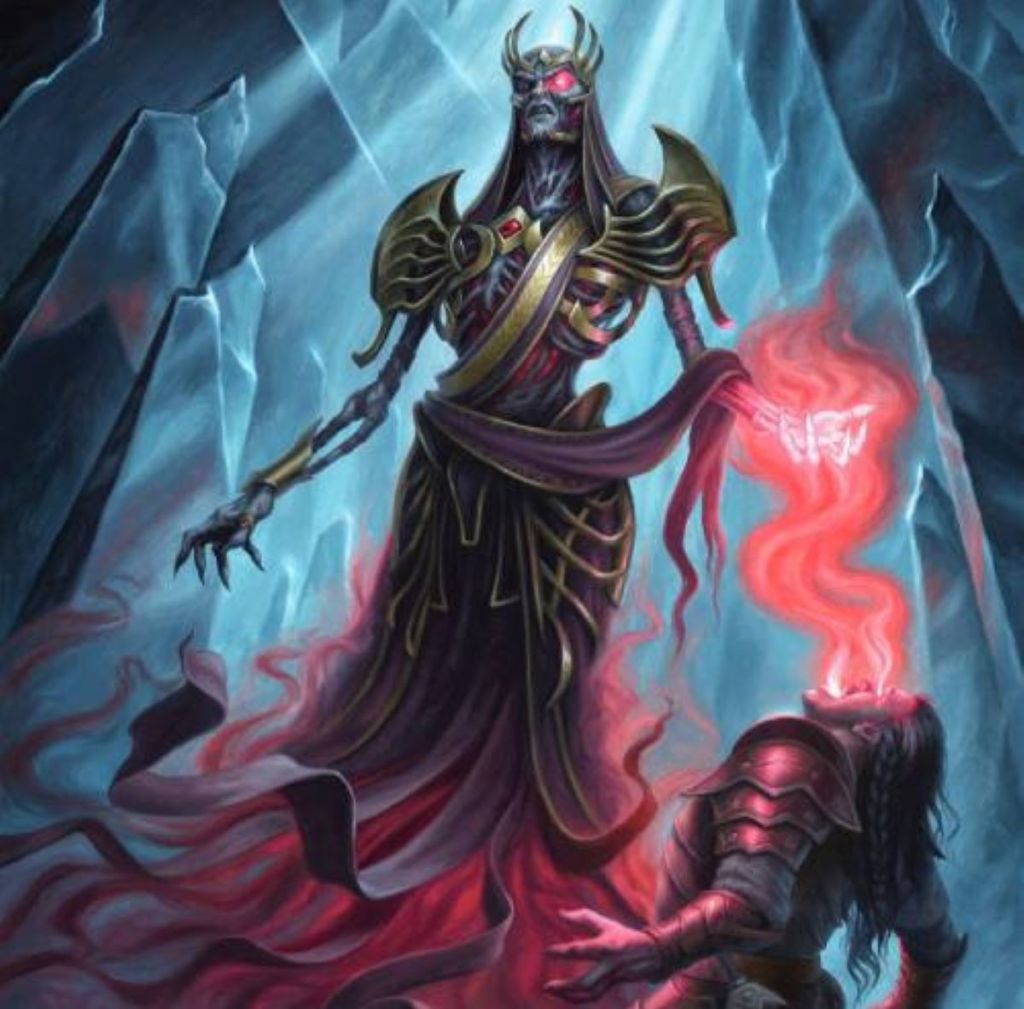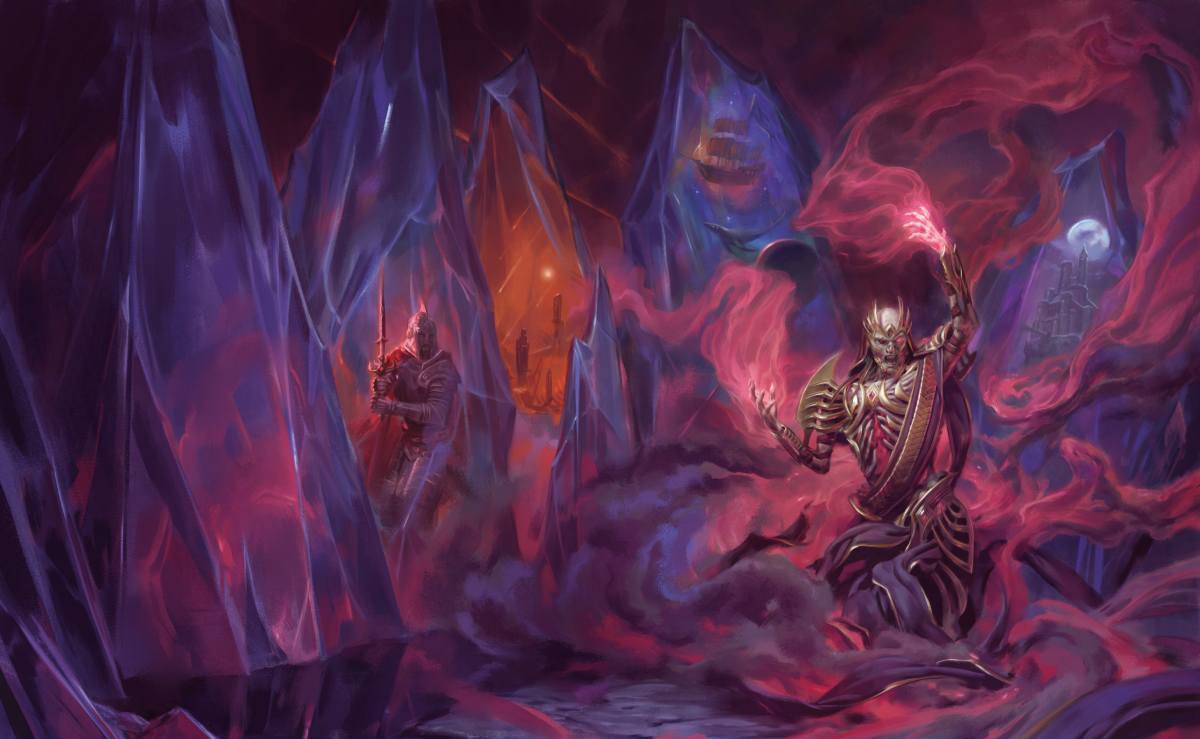One of the greatest villains of Dungeons & Dragons is Vecna, a lich god with dimension-spanning cults and body parts so evil they corrupt anyone who finds them. Originating in the Greyhawk setting, Vecna has proven to be such a popular villain that his influence has extended to the Forgotten Realms, Ravenloft and even other media like Stranger Things. For DnD‘s 50th anniversary, it seems only fitting that this world-spanning campaign book, Vecna: Eve of Ruin, puts the Arch-Lich front and centre.
Eve of Ruin is a campaign that takes characters from levels 10 to 20 where the majority of published campaigns focus on lower-level characters. While starting at 10 might be less accessible, it does give Dungeon Masters a great opportunity to work with some of the higher-level monsters. For players, it is a chance to use those fabled level 17 abilities that seem like an unattainable dream for most groups. Eve of Ruin also contains advice for starting characters at 10 for the adventure or adapting existing characters, and there are options to scale the adventures up and down a little for different levels.
Eve of Ruin is more than just a greatest hits collection of settings and cameos. It is packed with evocative adventures in different worlds where the characters face devious puzzles, shocking twists and even gain access to a unique mechanic unavailable in other games. To discuss it any further requires a certain degree of spoilers, and if you’re planning to play Eve of Ruin, I’d recommend stopping here, as the twists are worth waiting for.

In Vecna: Eve of Ruin, a simple investigation into a group of missing nobles in the Forgotten Realms city of Neverwinter throws the player characters into a world-hopping adventure to stop Vecna from reshaping reality itself to make his perfect new world. At the centre of this campaign is the eternal struggle between Vecna and his former ally Kas, now a powerful vampire lord in his own right. Kas himself is a figure who looms large across the book and this campaign is a great opportunity to dramatise the conflict between these two legends. Along the way, Eve of Ruin brings in fan-favorite figures like Lolth, Mordenkainen, Tasha, Strahd and the Lord of Blades. It may not be a game for starting players, because of the added complexity of characters at 10th level and above and the amount of backstory this campaign evokes. Nevertheless, it is a fun way to play in every setting at once. I was very happy to see my personal favourites, Ravenloft, Eberron and Planescape, interacting with the core Forgotten Realms in a way that I hope brings newer players into those fantastic worlds.
Eve of Ruin introduces a unique mechanic through the player characters’ links to Vecna himself: secrets. Vecna is gathering all the secrets he can to empower his act of creation, and the characters can expend the secrets they learn along the way to give the whole party advantage on d20 rolls for 1 minute. It is a thematically-interesting way to explore the link with Vecna, and encourages the characters to spend time with every NPC.
Each adventure takes place in a different setting, and this is where its limitations start to show. Adventures with rich and complex ongoing stories at their heart are highly rewarding for DMs and players, but they can quickly unravel as soon as the players start to express their agency. By dragging the characters from world to world, the adventure needs to be at least partly on rails. Some groups may balk at the fact that they are forcibly teleported right from the first adventure. The revelation about Mordenkainen in Chapter 2 is a highly dramatic moment, but trying to manage it in the face of player ingenuity could be tricky, especially for a less experienced DM. Despite these small objections, Eve of Ruin is clearly a labour of love. Each individual chapter is stuffed full of setting details, NPCs, and puzzles that make Eve of Ruin a meaty and satisfying campaign. A worthy celebration of the greatest lich who ever liched.
[This review is based on a retail copy of the game purchased by the reviewer.]








